10 of the Cheapest Warren Buffett Stocks
Warren Buffett, chairman and CEO of legendary holding company Berkshire Hathaway (BRK.B), is often called the greatest value investor of all time.

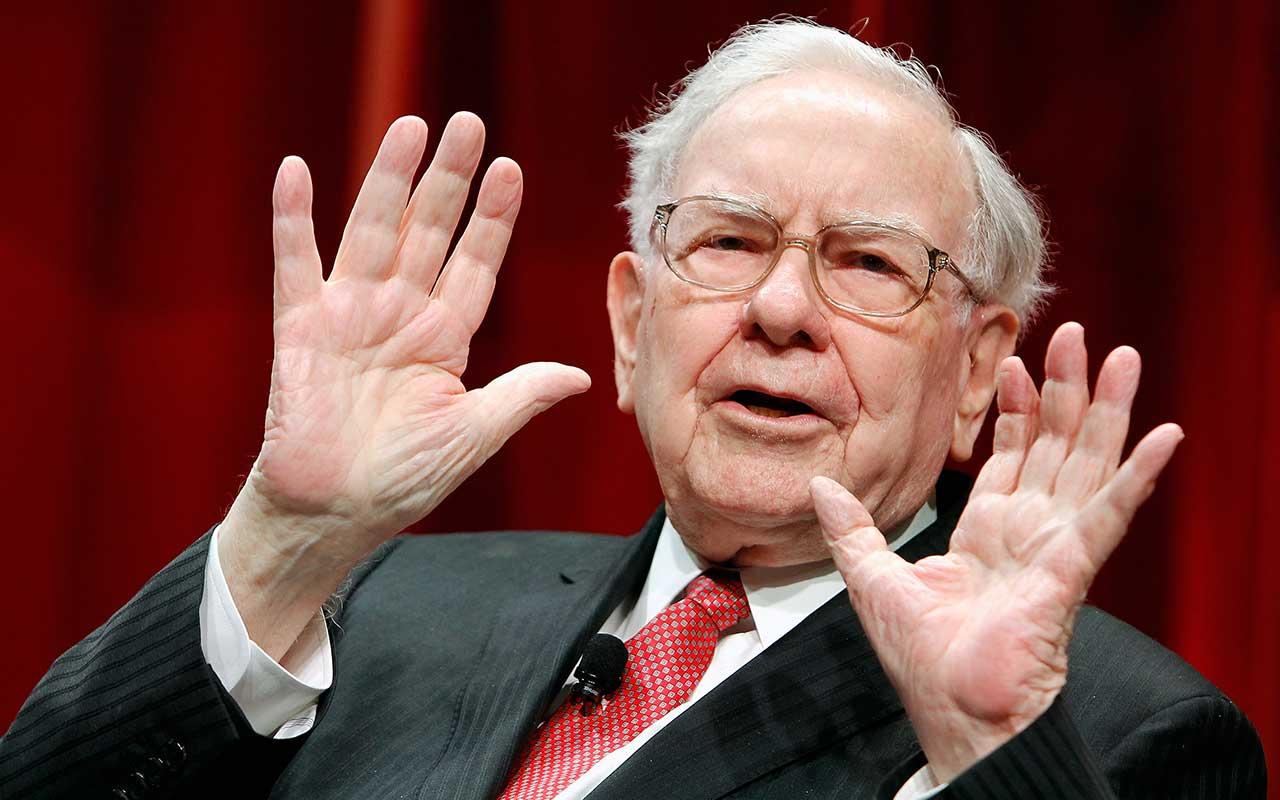
Profit and prosper with the best of Kiplinger's advice on investing, taxes, retirement, personal finance and much more. Delivered daily. Enter your email in the box and click Sign Me Up.
You are now subscribed
Your newsletter sign-up was successful
Want to add more newsletters?

Delivered daily
Kiplinger Today
Profit and prosper with the best of Kiplinger's advice on investing, taxes, retirement, personal finance and much more delivered daily. Smart money moves start here.

Sent five days a week
Kiplinger A Step Ahead
Get practical help to make better financial decisions in your everyday life, from spending to savings on top deals.

Delivered daily
Kiplinger Closing Bell
Get today's biggest financial and investing headlines delivered to your inbox every day the U.S. stock market is open.

Sent twice a week
Kiplinger Adviser Intel
Financial pros across the country share best practices and fresh tactics to preserve and grow your wealth.

Delivered weekly
Kiplinger Tax Tips
Trim your federal and state tax bills with practical tax-planning and tax-cutting strategies.

Sent twice a week
Kiplinger Retirement Tips
Your twice-a-week guide to planning and enjoying a financially secure and richly rewarding retirement

Sent bimonthly.
Kiplinger Adviser Angle
Insights for advisers, wealth managers and other financial professionals.

Sent twice a week
Kiplinger Investing Weekly
Your twice-a-week roundup of promising stocks, funds, companies and industries you should consider, ones you should avoid, and why.

Sent weekly for six weeks
Kiplinger Invest for Retirement
Your step-by-step six-part series on how to invest for retirement, from devising a successful strategy to exactly which investments to choose.
Warren Buffett, chairman and CEO of legendary holding company Berkshire Hathaway (BRK.B), is often called the greatest value investor of all time. Although Buffett identifies targets based on their "intrinsic value," a number of Berkshire's holdings look like cheap stocks by more prosaic value indicators, too.
Not every stock held by Berkshire Hathaway is necessarily a bargain at its current share price. After all, Buffett has held some of these names for decades. To that end, we scoured Berkshire Hathaway's portfolio of nearly 50 stocks to find the ones that look like they're on sale these days.
In some cases, we relied on forward price-to-earnings multiples, which show what a stock costs in light of its expected earnings growth. (The S&P 500, by the way, trades at 18.6 times expected earnings, by Yardeni Research's calculations.) In others, we also took into consideration book values. And naturally we paid attention to long-term growth forecasts and fundamentals.
After sorting through the Berkshire Hathaway equity portfolio with those criteria in mind, these 10 names stood out among the cheapest Warren Buffett stocks.
Data is as of Jan. 23. Stocks listed in reverse order of forward P/E.

Apple
- Market value: $1.40 trillion
- Forward P/E: 24.2
- Shares held: 248,838,679
- Holding value: $79,436,771,497
- Apple (AAPL, $319.23) is king of the Buffett stocks. The Oracle of Omaha has never been much of a tech investor, but he sure does love Apple. He took his first bite in early 2016, and the iPhone maker has since become Berkshire Hathaway's single-largest holding.
Amazingly, shares in Apple have more than tripled since early 2016, but they still look like a bargain. Sure, AAPL stock goes for more than 24 times expected earnings -- more than the S&P 500's 18.6. But the company is forecast to deliver average annual earnings growth of 11.5%. The S&P 500 is expected to increase adjusted earnings at a rate in the single digits.
Apple accounts for more than a quarter of the total value of Berkshire Hathaway's equity portfolio. And unlike many of Berkshire Hathaway's holdings, Buffett has been happy to discuss his ardor for AAPL. As he has said more than once on CNBC, he loves the power of Apple's brand and its ecosystem of products (such as the iPhone and iPad) and services (such as Apple Pay and iTunes).
"I do not focus on the sales in the next quarter or the next year," Buffett has said. "I focus on the ... hundreds and hundreds and hundreds of millions of people who practically live their lives by (the iPhone)."
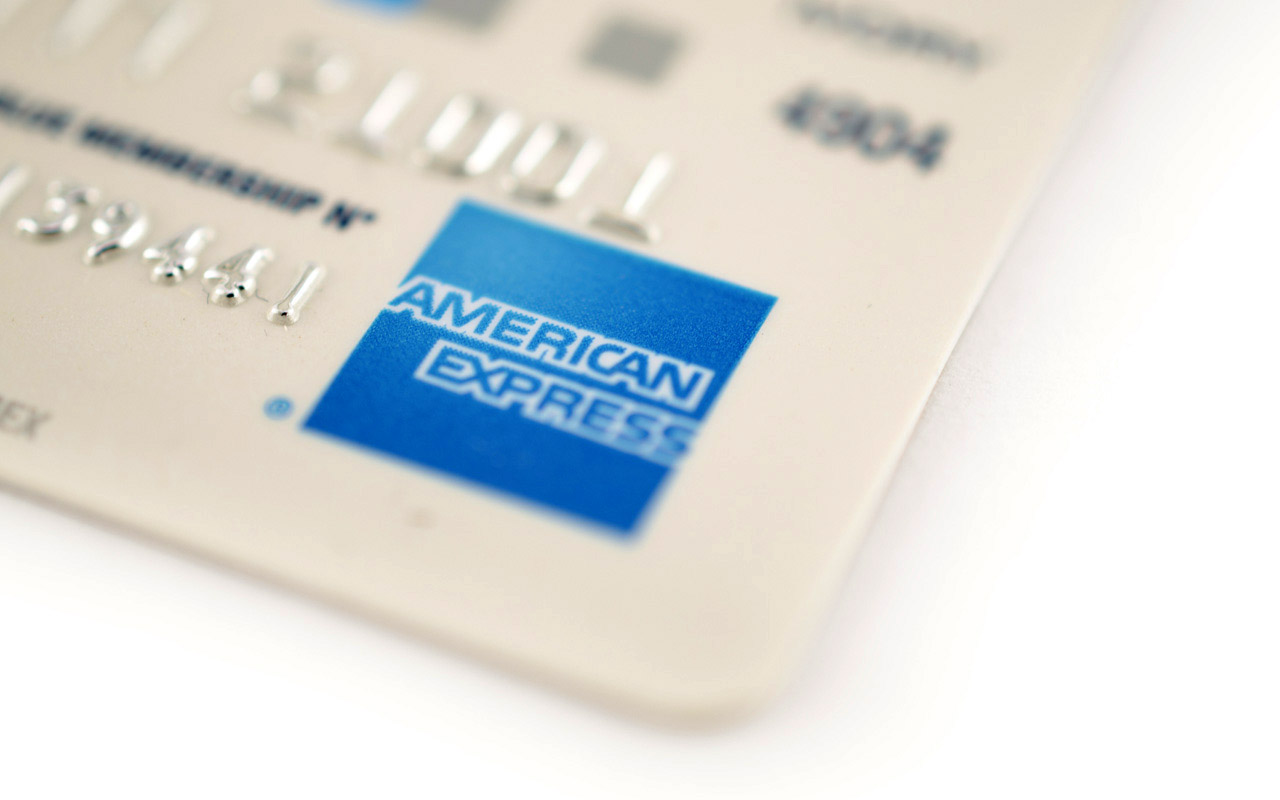
American Express
- Market value: $107.5 billion
- Forward P/E: 15.2
- Shares held: 151,610,700
- Holding value: $19,917,097,659
Buffett likes to say this his preferred holding period is "forever." Look no further than Dow component American Express (AXP, $131.37) to understand just how serious he is about investing for the long haul.
A 12.5% average annual return over the past quarter-century would make most investors glow -- and more than justifies AXP trading at 15.2 times its earnings forecast.
Buffett picked up his initial stake in the credit card company in 1963, when a struggling AmEx badly needed capital. Berkshire obliged, getting favorable terms on its investment. Buffett has played the role of white knight many times over the years, including during the 2008 financial crisis, to get stakes in quality companies at a discount. (Think: Goldman Sachs and Bank of America.)
Berkshire Hathaway, which owns 18.3% of American Express' shares outstanding, is by far the company's largest shareholder. No. 2 Vanguard owns less than 6%. Buffett praised the power of AmEx's brand at Berkshire's 2019 annual meeting: "It's a fantastic story, and I'm glad we own 18% of it," he said.

Suncor Energy
- Market value: $50.3 billion
- Forward P/E: 14.4
- Shares held: 10,758,000
- Holding value: $352,216,920
Warren Buffett made a move in the energy sector by initiating a position in Suncor Energy (SU, $32.74) during the fourth quarter of 2018. And it's a twofold rarity among Buffett stocks: It's an energy stock, and it's not U.S.-based.
If this bet on Canada's biggest oil-and-gas company sounds familiar, it should: This is the second time Berkshire Hathaway has taken a stab at Suncor. The company originally invested in the energy giant in 2013, then sold the entirety of the position three years later. Suncor – an integrated giant whose operations span oil sands developments, offshore oil production, biofuels and even wind energy – also sells its refined fuel via a network of more than 1,500 Petro-Canada stations.
And did we mention SU is on sale? The stock trades at a discount to the broad market and a deep discount compared with its own five-year average.
Suncor also is a member of the Canadian Dividend Aristocrats by virtue of having raised its annual dividend payouts for 17 consecutive years.

DaVita
- Market value: $10.3 billion
- Forward P/E: 13.9
- Shares held: 38,565,570
- Holding value: $3,104,528,385
Berkshire disclosed a position in DaVita (DVA, $80.50) during 2012's first quarter.
By forward P/E, DVA trades at a significant discount to its own five-year average of 16.7 times earnings.
DaVita, which provides kidney care and operates dialysis centers, serves more than 1.7 million patients in the U.S. and nine other countries. Aging baby boomers and a graying population in many developed markets should provide a strong, secular tailwind.
Given that DVA was a large position of Ted Weschler's Peninsula Capital in his pre-Berkshire days, it wasn't unreasonable to assume that it was his pick. Weschler confirmed as much in 2014.
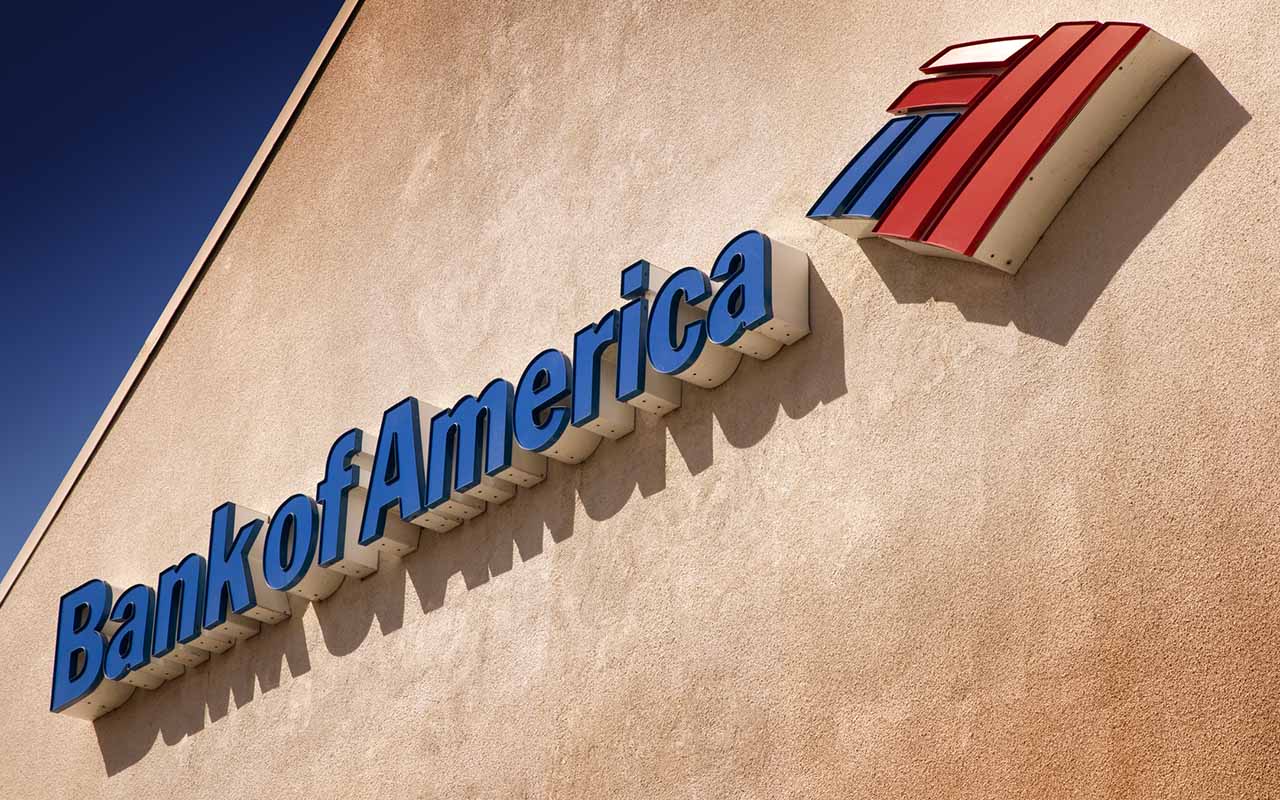
Bank of America
- Market value: $301.5 billion
- Forward P/E: 11.4
- Shares held: 927,248,600
- Holding value: $31,637,722,232
It should be clear by now that Buffett is bonkers for bank stocks. And the crown jewel of his financial sector holdings is Bank of America (BAC, $34.12), the nation's second-largest bank by assets.
The stock is also a steal these days. BAC trades at only 1.1 times its estimated 2021 book value. JPMorgan Chase (JPM), by comparison, trades at 1.7 times book value.
Buffett's interest in BAC dates back to 2011, when he swooped in to shore up the firm's finances in the wake of the Great Recession. In exchange for investing $5 billion in the firm, Berkshire received preferred stock yielding 6% and warrants giving Berkshire the right to purchase BofA common stock at a steep discount. (The Oracle of Omaha exercised those warrants in 2017, netting a $12 billion profit in the process.)
BofA is a big deal for Berkshire Hathaway, and it works the other way around. BAC shares account for a whopping 12.6% of Buffett's equity portfolio. By the same token, Berkshire is Bank of America's largest shareholder, at just under 10% of its shares outstanding.
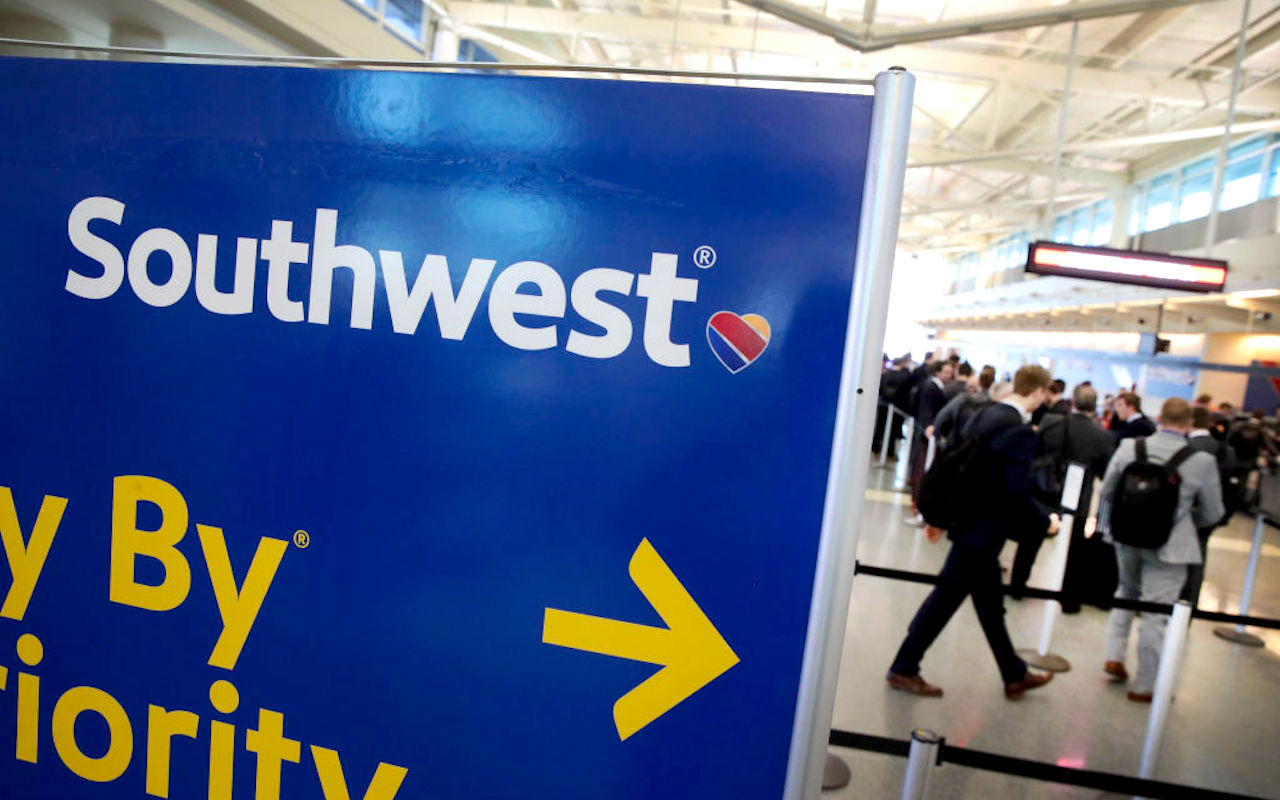
Southwest Airlines
- Market value: $28.8 billion
- Forward P/E: 11.3
- Shares held: 53,649,213
- Holding value: $2,972,166,400
Warren Buffett isn't afraid to admit when he's wrong and reverse course. And perhaps his most surprising about-face came in regards to the airline industry.
Buffett long excoriated the sector, calling it a "death trap" for investors.
"If a capitalist had been present at Kitty Hawk back in the early 1900s he should've shot Orville Wright; he would have saved his progeny money," Buffett once wrote.
But Southwest Airlines (LUV, $55.40) and the other three major carriers became Buffett stocks in 2016. Years of industry consolidation and Buffett's confidence in the U.S. economy's long-term dynamism finally made the time ripe for Berkshire Hathaway to buy.
Southwest is beloved by its customers and employees alike, typically finding itself near the top of "Best Airline" and "Best Places to Work For" lists. Indeed, in 2019, it won awards from J.D. Power, TripAdvisor and InsideFlyer.
LUV shares have mostly treaded water over the past year, which has helped deflate its valuation compared to the rest of the hot-running market. Southwest currently trades at a forward P/E of a little more than 11 – much cheaper than the S&P 500 at present.
Berkshire did pare its position in Southwest by 2% a year ago, but that was only to keep Berkshire's ownership stake below 10%, which would trigger regulatory hassles. BRK.B remains Southwest's second-largest shareholder at just a hair under 10% of the company's shares outstanding, according to data from S&P Global Market Intelligence.
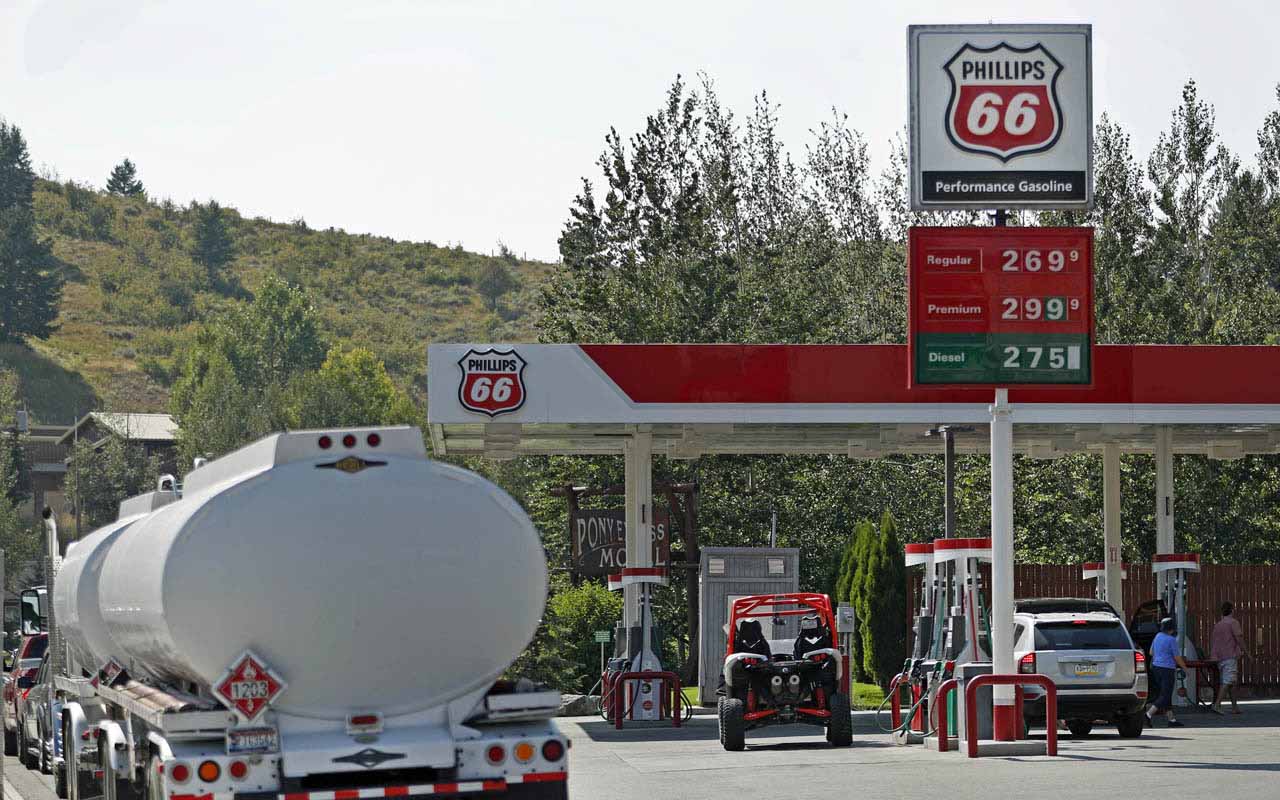
Phillips 66
- Market value: $45.4 billion
- Forward P/E: 10.5
- Shares held: 5,182,637
- Holding value: $529,043,585
- Phillips 66 (PSX, $102.08) is another of Berkshire Hathaway's handful of energy-sector investments. Buffett first bought shares in the oil-and-gas company in 2012. But despite having heaped praise on PSX in the past, Buffett has dramatically reduced his stake over the past year-plus, even as the stock has become cheaper. PSX trades well below its own five-year average of 13.5 times earnings.
In the first quarter of 2018, he sold a whopping 35 million shares, reducing BRK.B's stake by more than 40%. That particular move was made only to avoid regulatory headaches. Indeed, the purchaser of the shares was none other than PSX.
As Buffett said at the time: "Phillips 66 is a great company with a diversified downstream portfolio and a strong management team. This transaction was solely motivated by our desire to eliminate the regulatory requirements that come with ownership levels above 10%."
The thing is, Buffett continues to burn off Berkshire Hathaway's PSX holdings. And Buffett has been characteristically mum on his reasons for those sales.
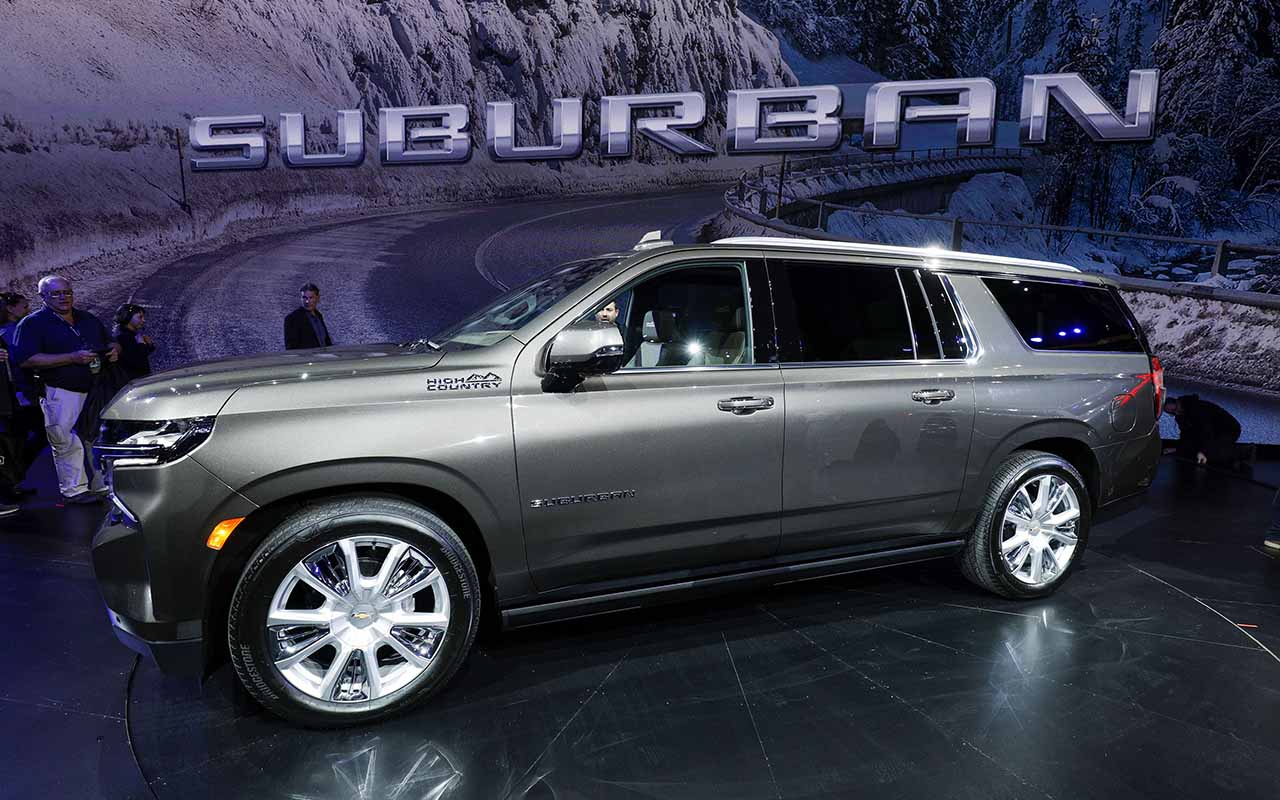
General Motors
- Market value: $49.8 billion
- Forward P/E: 7.0
- Shares held: 72,269,696
- Holding value: $2,520,766,996
The market doesn't much like paying a premium for General Motors (GM, $34.88). Historically it trades at about 6.3 times expected earnings. GM is above that level now, but paying seven times earnings for 10% annual growth is still a bargain.
Warren Buffett first took a stake in the world's fourth-largest auto manufacturer by production, in early 2012. He most recently upped Berkshire Hathaway's holdings during the fourth quarter of 2018, when he increased his position by 37%.
In many ways, GM looks like a classic Buffett value bet.
General Motors is an iconic American brand and, as the No. 1 domestic automaker, a bet on the long-term growth of the U.S. economy. Buffett has sung the praises of GM CEO Mary Barra on multiple occasions. At one point, he said, "Mary is as strong as they come. She is as good as I've seen."
The dividend yield of 4.4% solidifies GM's case for being a value pick.

American Airlines
- Market value: $12.6 billion
- Forward P/E: 5.3
- Shares held: 43,700,000
- Holding value: $1,258,560,000
- American Airlines (AAL, $28.80) is part of the quartet of major airline stocks Buffett bought in late 2016. Like Southwest, American Airlines is dirt-cheap. Unlike Southwest, American Airlines is dirt-cheap because its stock has performed miserably.
AAL shares have lost 23% of their value since the end of 2016's third quarter – the period during which Berkshire Hathaway initiated its stake in the airline stock. That compares to a 37% gain for Southwest, a 52% climb for Delta Air Lines (DAL) and a 59% performance out of United Airlines (UAL).
The reasons have been myriad. Its operations simply haven't performed as well as its peers, for one. It also has been impacted by the grounding of Boeing's (BA) 737 Max jets. Investors also may have been cautious because of its heavy debt load – it boasts total IOUs of $33.4 billion (including $21.4 billion in long-term debt) versus less than $4 billion in cash.
Nonetheless, Buffett's only selling has been incremental – what he needs to shed to remain below the 10% ownership threshold that would trigger regulatory issues. Berkshire Hathaway holds 9.8% of the firm's shares outstanding, making it American's second-largest shareholder, behind only Primecap Management.
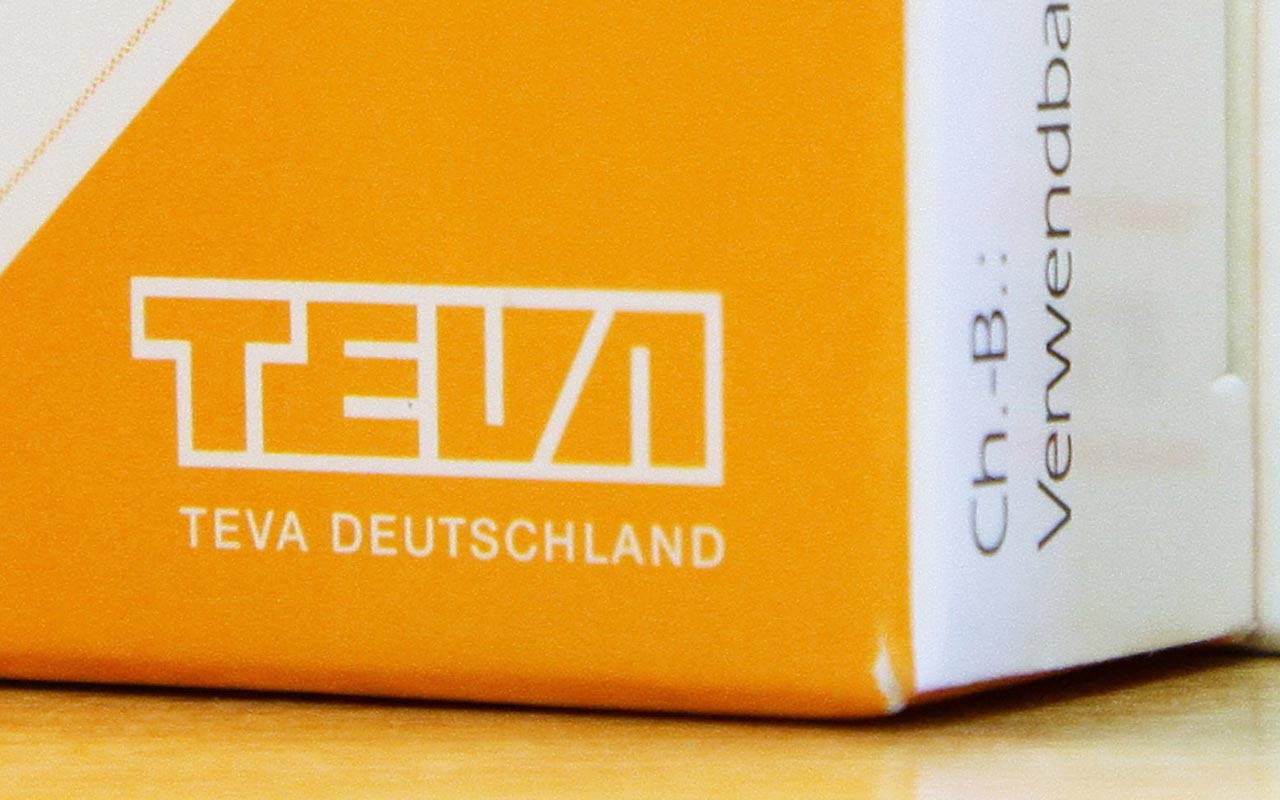
Teva Pharmaceutical
- Market value: $11.3 billion
- Forward P/E: 4.3
- Shares held: 43,249,295
- Holding value: $449,360,175
Berkshire Hathaway took a stake in Teva Pharmaceutical (TEVA, $10.39) during the fourth quarter of 2017, and at the time, it looked like a classic Warren Buffett value move. The Israel-based drug manufacturer's stock was off by about 70% from its mid-2015 peak. A bloated balance sheet, mass layoffs and the looming expiration of drug patents had short sellers licking their chops.
Berkshire then doubled his stake in Teva during the first quarter of 2018, when shares looked really cheap.
Alas, much lower prices were in the offing.
TEVA shares have lost 40% of their value since the start of Q2 2018, and that's after factoring in a 50%-plus rally since they bottomed out in August 2019. The recent positive momentum has come amid stabilization in the company's generics business and Teva's work on refinancing and paying down debt.
At the moment, TEVA trades at a mere 4 times analysts' estimates for future earnings, making it the cheapest Warren Buffett stock of all.
Profit and prosper with the best of Kiplinger's advice on investing, taxes, retirement, personal finance and much more. Delivered daily. Enter your email in the box and click Sign Me Up.

Dan Burrows is Kiplinger's senior investing writer, having joined the publication full time in 2016.
A long-time financial journalist, Dan is a veteran of MarketWatch, CBS MoneyWatch, SmartMoney, InvestorPlace, DailyFinance and other tier 1 national publications. He has written for The Wall Street Journal, Bloomberg and Consumer Reports and his stories have appeared in the New York Daily News, the San Jose Mercury News and Investor's Business Daily, among many other outlets. As a senior writer at AOL's DailyFinance, Dan reported market news from the floor of the New York Stock Exchange.
Once upon a time – before his days as a financial reporter and assistant financial editor at legendary fashion trade paper Women's Wear Daily – Dan worked for Spy magazine, scribbled away at Time Inc. and contributed to Maxim magazine back when lad mags were a thing. He's also written for Esquire magazine's Dubious Achievements Awards.
In his current role at Kiplinger, Dan writes about markets and macroeconomics.
Dan holds a bachelor's degree from Oberlin College and a master's degree from Columbia University.
Disclosure: Dan does not trade individual stocks or securities. He is eternally long the U.S equity market, primarily through tax-advantaged accounts.
-
 The New Reality for Entertainment
The New Reality for EntertainmentThe Kiplinger Letter The entertainment industry is shifting as movie and TV companies face fierce competition, fight for attention and cope with artificial intelligence.
-
 Stocks Sink With Alphabet, Bitcoin: Stock Market Today
Stocks Sink With Alphabet, Bitcoin: Stock Market TodayA dismal round of jobs data did little to lift sentiment on Thursday.
-
 Betting on Super Bowl 2026? New IRS Tax Changes Could Cost You
Betting on Super Bowl 2026? New IRS Tax Changes Could Cost YouTaxable Income When Super Bowl LX hype fades, some fans may be surprised to learn that sports betting tax rules have shifted.
-
 Stocks Sink With Alphabet, Bitcoin: Stock Market Today
Stocks Sink With Alphabet, Bitcoin: Stock Market TodayA dismal round of jobs data did little to lift sentiment on Thursday.
-
 Dow Leads in Mixed Session on Amgen Earnings: Stock Market Today
Dow Leads in Mixed Session on Amgen Earnings: Stock Market TodayThe rest of Wall Street struggled as Advanced Micro Devices earnings caused a chip-stock sell-off.
-
 Nasdaq Slides 1.4% on Big Tech Questions: Stock Market Today
Nasdaq Slides 1.4% on Big Tech Questions: Stock Market TodayPalantir Technologies proves at least one publicly traded company can spend a lot of money on AI and make a lot of money on AI.
-
 Fed Vibes Lift Stocks, Dow Up 515 Points: Stock Market Today
Fed Vibes Lift Stocks, Dow Up 515 Points: Stock Market TodayIncoming economic data, including the January jobs report, has been delayed again by another federal government shutdown.
-
 Stocks Close Down as Gold, Silver Spiral: Stock Market Today
Stocks Close Down as Gold, Silver Spiral: Stock Market TodayA "long-overdue correction" temporarily halted a massive rally in gold and silver, while the Dow took a hit from negative reactions to blue-chip earnings.
-
 Nasdaq Drops 172 Points on MSFT AI Spend: Stock Market Today
Nasdaq Drops 172 Points on MSFT AI Spend: Stock Market TodayMicrosoft, Meta Platforms and a mid-cap energy stock have a lot to say about the state of the AI revolution today.
-
 S&P 500 Tops 7,000, Fed Pauses Rate Cuts: Stock Market Today
S&P 500 Tops 7,000, Fed Pauses Rate Cuts: Stock Market TodayInvestors, traders and speculators will probably have to wait until after Jerome Powell steps down for the next Fed rate cut.
-
 S&P 500 Hits New High Before Big Tech Earnings, Fed: Stock Market Today
S&P 500 Hits New High Before Big Tech Earnings, Fed: Stock Market TodayThe tech-heavy Nasdaq also shone in Tuesday's session, while UnitedHealth dragged on the blue-chip Dow Jones Industrial Average.
